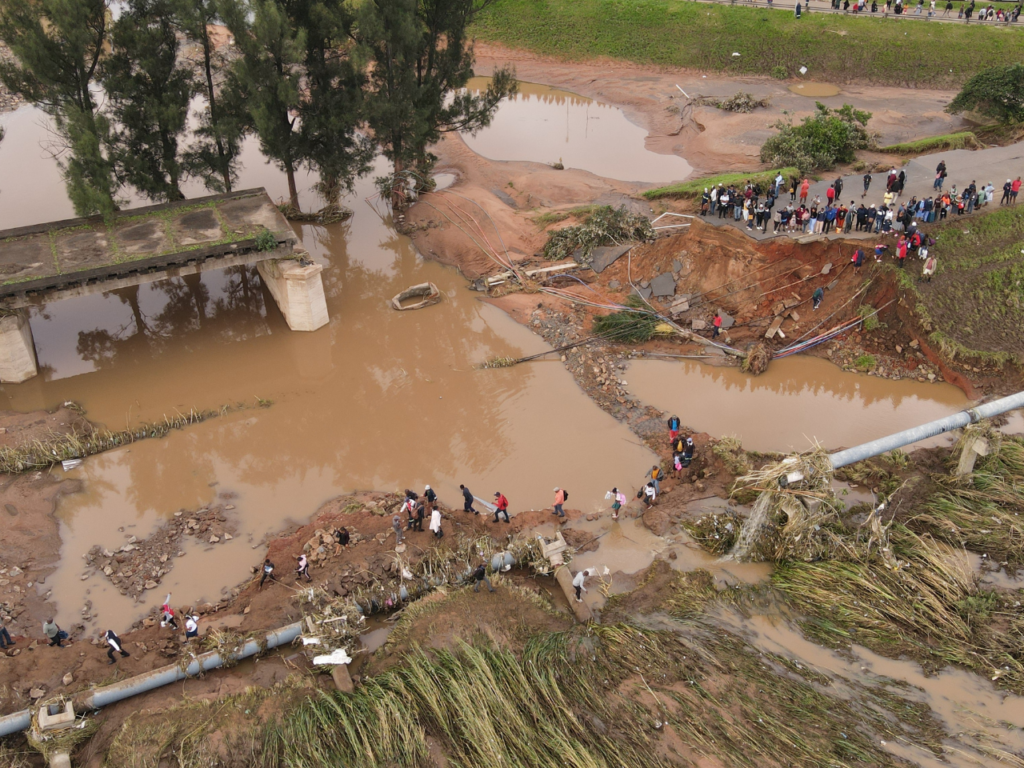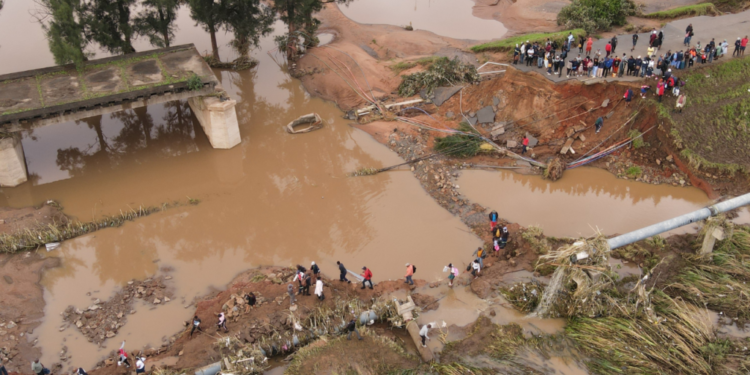Industrial companies in KwaZulu-Natal (KZN) are finding it increasingly difficult to mitigate risks related to water supply and quality. Acting alone in trying to resolve these risks illustrates the shortcomings of non-collaboration and highlights the need for a collaborative approach to build water resilience.
KZN experiences water supply interruptions for a number of reasons, Tamaryn Hale, principal environmental scientist at SRK Consulting’s Durban practice says that “ageing infrastructure and poor maintenance may be the primary cause of water supply problems, but this has been exacerbated by the recent extreme weather events in the province as well as the recovery from the 2022 riots.”
“We have seen more clients struggling with the reliability of their water supply and adequate water quality – factors that pose considerable risk to their businesses,” adds Hale.
“These companies are responding individually as best they can, but many of these challenges are outside of their control. There is a genuine need to shift towards a more collaborative approach, which can build not only their corporate resilience but that of other stakeholders in their catchments.”
Poor state of water systems
The Department of Water and Sanitation’s 2023 Blue Drop report showed that out of the 172 water supply systems in KZN, only 3 were Blue Drop certified, 34 were performing poorly, and 21 were in a critical state. This report is very useful in contextualising the water woes that industrial companies face in KZN.

Tamaryn Hale, a principal environmental scientist at SRK’s Durban practice has specialised in water stewardship, environmental management, and environmental auditing and compliance.
In this context “Companies are pursuing borehole drilling, river abstraction, and rainwater harvesting to address water risks. However, while productive these processes are often complex and time-consuming and sometimes have uncertain outcomes. Moreover, the quality of groundwater is often not at the specification required, so costly purification processes are needed to treat the water before it can be used,’ says Hale. She points out that reducing water use certainly presents some opportunities in terms of better maintenance and staff education, but achieving real savings in water consumption usually meant process enhancements which demanded equipment retrofitting and other capital investments.
“The more sustainable answer to today’s water challenges can be found in the water stewardship approach, which considers not just a company’s on-site conditions but the broader catchment,” she says.
“Industries within a catchment will face similar challenges, so they need to see the bigger picture and strive for closer collaboration in the ways that they develop solutions.”
She acknowledges that this level of cooperation can be a daunting task, but the water sector has in fact developed the expertise and tools to pursue this route. For instance, the Alliance for Water Stewardship (AWS) – a global membership collaboration comprising businesses, NGOs and the public sector – has developed the AWS International Water Stewardship Standard.  “The AWS framework is a valuable and proven resource to identify the water risks businesses face, not only for their site but for the catchment in which their site is located,” she says. “From this foundation, they can set up a plan to address and mitigate the risks.” The first step in the AWS certification process involves gathering data to understand shared water challenges and water risks, impacts and opportunities, she explained. This includes understanding relevant stakeholders and their water-related challenges, as well as each site’s ability to create influence beyond its boundaries. “The next step is for the partners in such an initiative to commit to action and begin the necessary planning – through the compilation of a Water Stewardship Plan,” she said. “Using the information gathered, they will establish the desired outcomes to address shared water challenges, and set out the practical actions to achieve the outcomes.” Hale, who is a credentialled AWS specialist, highlighted that KZN businesses should draw inspiration from the country’s recent Rugby World Cup slogan – Stronger Together – as they find ways to build water resilience through closer co-operation.
“The AWS framework is a valuable and proven resource to identify the water risks businesses face, not only for their site but for the catchment in which their site is located,” she says. “From this foundation, they can set up a plan to address and mitigate the risks.” The first step in the AWS certification process involves gathering data to understand shared water challenges and water risks, impacts and opportunities, she explained. This includes understanding relevant stakeholders and their water-related challenges, as well as each site’s ability to create influence beyond its boundaries. “The next step is for the partners in such an initiative to commit to action and begin the necessary planning – through the compilation of a Water Stewardship Plan,” she said. “Using the information gathered, they will establish the desired outcomes to address shared water challenges, and set out the practical actions to achieve the outcomes.” Hale, who is a credentialled AWS specialist, highlighted that KZN businesses should draw inspiration from the country’s recent Rugby World Cup slogan – Stronger Together – as they find ways to build water resilience through closer co-operation.










